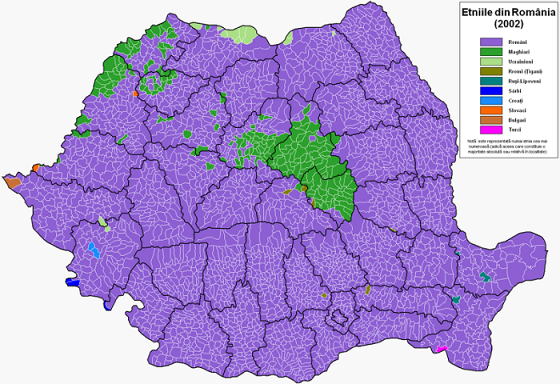A lot has been said lately about multiculturalism and its assumed death, after Chancellor Merkel had a go at it recently. Merkel voiced the frustration of many Germans who fear Islamisation of Germany and this frustration was finally accepted at the highest levels. But what is in fact multiculturalism and why do we care so much about it? Is it a good thing that a certain socio-political paradigm with heavy cultural implications is over?
And if it is indeed over, what is yet to come? And more importantly, are we ready for its presumed substitution?
This particular author finds multiculturalism a positive added value to any society. Cultural and linguistic diversity are values that fundamentally shaped my thinking and personality.
To find bridges between languages and cultures enhances one’s capacity of understanding others and it also gives a much better insight into how others perceive the very same problem. In fact it helps deconstructing the very frightening concept of the “other”, through knowledge.
In my case, I am happy to say, the sugary coated version of multiculturalism worked. But the very same question remains open for the overwhelming majority of Szekler society. What does multiculturalism mean for them and if there is such a thing at Szeklerland does it work at all?
Since Transylvania has been culturally layered for centuries, the existence of cultural parallels is something we accept as rather normal. What Transylvania is today has been shaped by successions of interchanging cultures, where every ethnicity had its own contribution.
In the case of Szeklerland we often have the impression that our region was rather isolated due its special military status. But on a closer look I grew to the conclusion that this perception might be fundamentally wrong. In fact, the historical Saxonland is too close to Szeklerland just as well as historical Moldova was.
Szekler girls were maids in affluent Saxon houses and Romanian shepherds could be found in almost every Szekler village.
And this is what multiculturalism is about. An environment where we are faced with the fact of the presence of a person or persons of other cultural background, and as a result of interaction among groups, group members start importing customs, habits and ideas.
Given the multitude of ethnic violence all over the world, I think us, Transylvanians we did a good job by surviving next to each other as well as influencing each other culturally.
That said, it must be mentioned though, that there is a fundamental difference between multiculturality in Transylvania and the one that Chancellor Merkel was talking about. Transylvanian communities, among them the Szeklers survived because they were always embedded into their respective environment as a community.
From that particular tradition springs the desire for the autonomy of Szeklerland. It is the community’s desire to be integrated into Romanian society not as individuals but more so on a community level.
Many political scientists foreseen the end of an era where individualism as a defining concept will end prevailing. Some raised the valid question of the lack of collective frameworks that should allow the members of minorities to practice some very basic rights, that are rather self understanding for the majority.
Among them extremely simple things, like reading a leaflet attached to a prescription pill or seeking justice in a court. Genuine multiculturalism allows that. Or should allow that.
Interestingly, the ubiquitous view of individual integration as the only politically correct option was challenged by non-European communities. Non-European communities that started gaining space and rooted into European soil with very strong community traditions.
In my view, we are not witnessing the end of multiculturalism, but we are witnessing the emergence of collectivism to the detriment of individualism. And for that I really don’t think liberal Europe is ready for. In that sense I believe liberal Europe is in deep denial, that shall lead to further acknowledgements in this regard.
And that means a very bitter pill to swallow for the liberal elite that dreamed of a Europe that was many built on northern type cultural individualism.
But let’s return to Szeklerland, our focus. Again, at a closer look, we might find that century long co-habitation made Romanian and Szekler communities very similar to each other. I could almost say that there are no major cultural differences in between us aside Religion and Language.
These two defining factors represent the demarcation lines among our communities, and these lines can be easily crossed. Based on that I would assume that multiculturalism does work here, at least untill we consider that the Szekler community has a sustainable future in Romania.
However, we only have a sustainable future in Romania if the state understands that we are its citizens just as much the majority is. If it allows and supports our community to flourish, as a perhaps somewhat “exotic” element of an otherwise very interesting country.
If it regards us as an added value to itself and instead of suppressing our culture, helps preserving it and promoting it. Because without this particular generosity and benevolence, multiculturality at Szeklerland will be indeed…dead.


